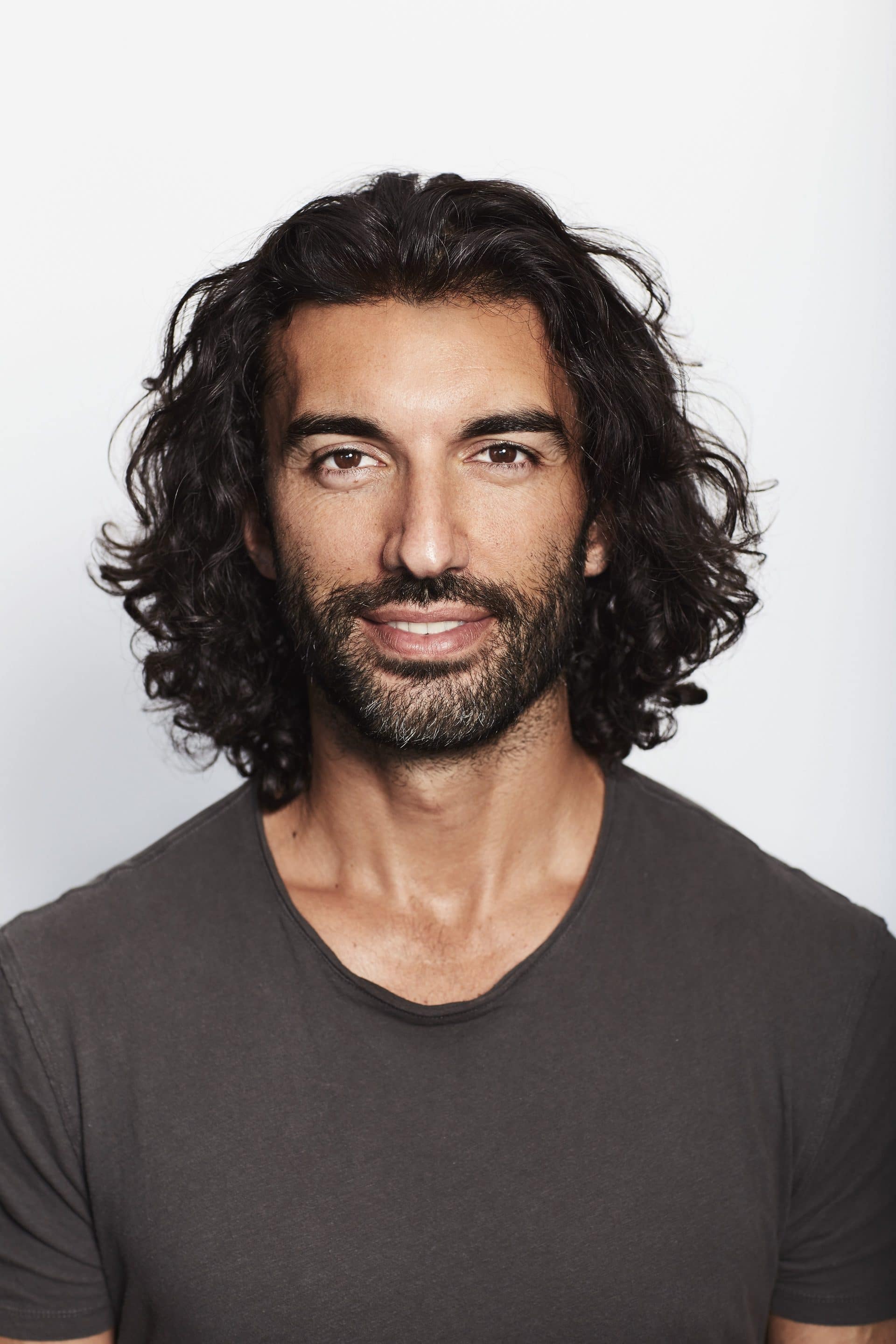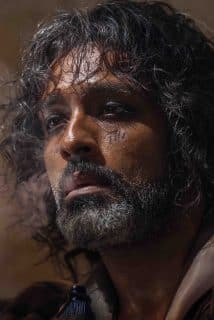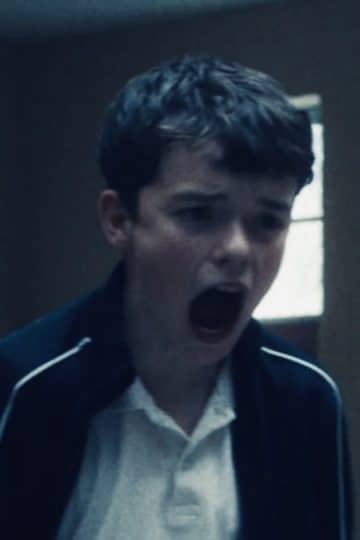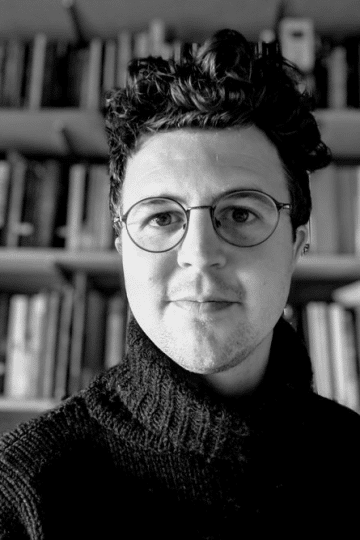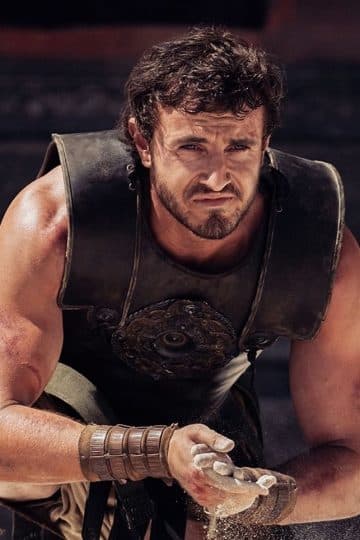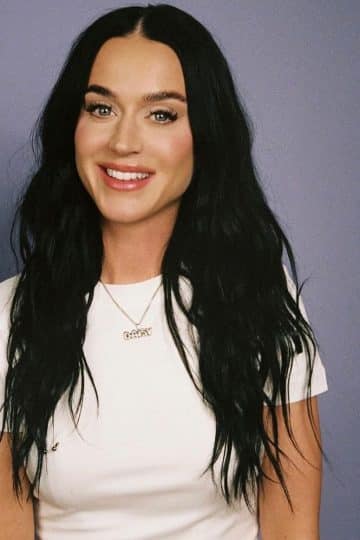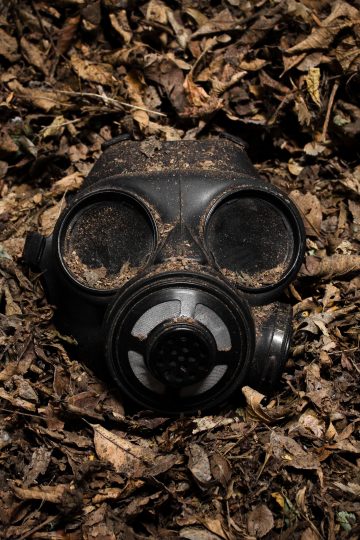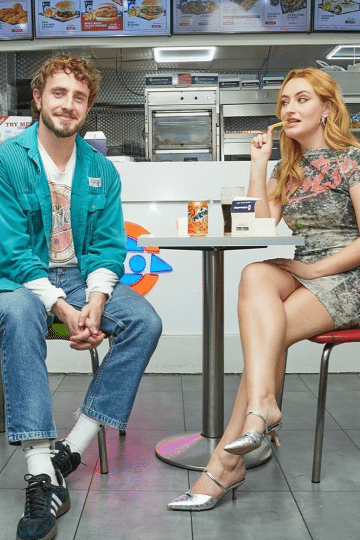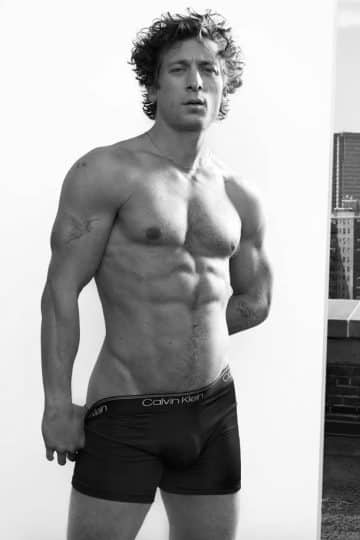Are you Man Enough? Justin Baldoni on undefining masculinity
Masculinity
An in-depth interview with Justin Baldoni - the actor and filmmaker and leading light in contemporary discussions around masculinity - about his remarkable new book, 'Man Enough: Undefining Masculinity'.
Now Justin may not be all that familiar to us Brits as an actor and film-maker, but for those of a certain persuasion interested in masculinity issues – and if you’re reading our site, you’re probably one of them – he is one of the most important figures in contemporary discussions.
His TEDTalk, ‘Why I’m done trying to be “man enough”’ was a truly watershed moment, in which he revealed, in a personal emotional way, the damage constricting ideas of ‘Being a Man’ can do.
He suggested men move away from trying to be some ideal the world has socialised into you, and start to be your own man – even a human. It arrived as the MeToo movement began and male mental health became a huge talking point, and with 3m views on YouTube it has surely changed the lives of many.
Three years on from the talk, Justin is now releasing a book called ‘Man Enough’ which is a brilliant extension of his work in this area. Again it uses his personal journey to provide an inclusive, warm but fearless look at the problems we men have, and make for ourselves, and as he takes us on an investigation in masculinity, we are also left with a blueprint with how to improve.
That process is not an overnight change but it is a crucial one of our times; we owe it to women, we owe it to marginalised groups, and we owe to ourselves, to pay attention to damaging behaviour and fix it wherever we can.
We spoke to Justin over Zoom – the LA resident was everything you would want and more, and here is our in-depth Q&A with him…enjoy!
Why was a book the next thing you wanted to tackle around these issues?
To be very honest I didn’t want to write a book. Before my TED talk I was approached about it, but I really resisted it, for a lot of reasons. I was not a good student, most of the teachers I had would be shocked that I could write, let alone write a book.
Growing up I had what we call in America learning disabilities, ADD and ADHD, where you can’t focus and you’re told that you’re less than, or you have a little harder time comprehending something. So I just never thought I would be an author. That’s for brilliant people, and I’m not that.
There was a lot of internal self worth struggles that I was up against. As I saw the response to the TEDTalk, as I saw men publicly bashing it and privately writing to me, when I heard about men like yourself who had fairly life altering experiences, and started things because of it, I realised there was a lot more I had to share, and also a lot more I had to learn.
So that’s why I didn’t jump into it. I was trying to understand what it would be and how the hell to approach this topic. I’m not an expert, I don’t have a masters in gender studies, philosophy, sociology, I’m just a guy who was raised as a man who sits at an intersection of privilege and power. That happens to just believe in the radical notion that women are people. That’s it, right? And honestly if it weren’t for the women in my life I’d be a disaster.
I realised I needed to write on the journey, not on the other end of the journey. This book is really an exploration of masculinity from somebody who’s in it, and learning in real time. And that’s a very messy and uncomfortable thing because I’m writing about stuff I’m still dealing with. I’m not on the other end of it not interrupting my wife, I still do it, the only difference is I catch myself. I still manspread, I still have pulls to porn, I’m not like this woke Buddhist monk that’s figured out the secret to existence. I’m in it, and that’s where most men are. And that’s why I wanted to write the book.
And also I didn’t feel like there were conversations happening in the way I felt would be the most constructive, if I was reading a book about where I am. Because I really wrote this book for myself, as a healing journey, and also I wrote the book I wish I could have read when I was 18 or 25 or 35. That wasn’t reprimanding me, or calling me out, but calling out men via somebody else’s life stories that I might be able to identify with and see my own with.
It isn’t about being told off, as many men seem to fear about masculinity discussions, this is about trying to understand?
Yeah understand ourselves, asking ourselves why it’s about awareness. This is step one, this is not a treatise. This is step one. The bar is so low you could crawl over it. We’re just figuring out as men how not to be defensive. Like we can’t even listen to the women in our lives tell us their worries about how they don’t feel safe walking to their car at night. We can’t even listen to that without being defensive. This is about awareness. And it was a very challenging book to write because the only way to write it is to write about the shit I struggle with.
Was it a concern as to how to get across to men?
Not so much a concern as to how to get to men, but how to get to myself. That’s why I wrote this for men. That’s why I say ‘we’ all the time, and set that up early on. WE is those who identify as male. This is written from a white, cis gendered, able bodied male perspective, I’m at the intersection of all the privilege and power. And I get that out way early on.
It’s a very nuanced, tricky subject, and the only way I can talk about it is with my own stuff. I don’t have the experience of being a disabled person, a black person, a Muslim person, a transgender person. I can only talk about my experience and hopefully some of my experience regardless of who you are, whether you are a woman or a man or a gender non-conforming person, you can deduct and find your own experiences and versions of it. Because the reasons I’m having these experiences that I share about in the book are the result of the invisible force of masculinity in the patriarchy that affects all of us. We’re all suffering, it just looks different. And I just happen to be at the top and in general the people that look like me cause the most suffering. I’m just trying to use that same power for healing.
Seeing your own position and recognising that invisible force – has that been a slow or was there a moment of realisation for you?
No it’s an ongoing long process that I’m still in, man. There’s no lightbulb moment. I don’t believe any man who says there was a lightbulb moment and suddenly he was a different person. I think it’s impossible. Like an alcoholic doesn’t just decide one day to put down alcohol. A drug addict doesn’t decide one day, I’m going to stop doing that. Because our brains have been trained via socialisation and this enmeshment of our neural pathways with trauma and socialisation, all these things together to create who we are, you just can’t become a different person overnight. It requires deep conscious awareness and work, and the unlearning of behaviours that we have been taught and reinforced our entire lives.
There’s these jokes about woke feminist guys that are wearing feminist t-shirts yet treating the girls and women in their lives like shit. I had a dear friend who’s a radical feminist tell me she can’t even count the number of guys wearing a ‘this is what a feminist looks like’ t-shirt that secretly have been abusive. No wonder women are so confused and angry. Because even those of us with the wherewithal and understanding to know we have to change something, can’t get out of our behaviour. Because that’s where the real work lies. It’s not an overnight snap. I did my TED Talk three years ago and I still interrupt my wife.
Boys in the UK have been in the news because of harassment and rape culture in schools. One thing that’s been interesting is the reaction of men, a lot of whom don’t want to admit the scale of the issue, and get angry with their denials…
Yeah you can’t even get to the conversation you’re trying to have without having this conversation. The Not All Men response to women sharing their struggles and fear, and the things they have to do to be safe, is no different to the white response to Black Lives Matter. Or the defensiveness that I experienced when my wife told me I was interrupting her. It’s all rooted in the same thing, it’s rooted in this patriarchal misogynist response that doesn’t allow us the ability to self-reflect or to have weakness, or to not be right. Because we’re taught, as the top of the food chain, that the world bends at our will, and revolves around us and that we must never show weakness. We must be leaders and alphas, we must be impenetrable and purposeful – and there’s this defensiveness and fragility that comes with that.
At the end of the day so much of masculinity is over-compensation to a fragile male ego. Because of the way we are socialised as boys and men, we’re taught that the way we make ourselves bigger and stronger and more powerful is by making another man feel less than. And if it’s not another man, then it’s a woman. There’s the idea that we need to dominate. Well, look at every problem that exists in the world, we’re talking about domination. Over-use and abuse of power. That’s the patriarchy right? So we first have to acknowledge that, even down to the environment by the way. Look at what humans are doing to the planet, we are dominating the environment, we’re over-using it. We’re not being thoughtful and mindful. It’s all connected. Wars start because of this. And it can be traced all the way back to growing up on the playground. What our parents and fathers and brothers taught us, what other men and what movies or TV shows teach. If we make ourselves have an inflated sense of self at the expense of another man, gender, race or sex, then that is the very thing that is leading to our fragile sense of self worth and our external validation.
Our egos are so fragile that we can’t take feedback. Therefore when a woman shares that she’s struggling with something after a woman was murdered, and a man needs to come online and go ‘well not all men. I’m a good one.’ – that just goes to show that we can’t even take feedback as a gender, let alone as an individual. You weren’t being attacked so why do you feel like you’re being attacked when women are saying men are making them not feel safe? The data is the data. I don’t know a women who feels safe at night walking anywhere, and sure it might not be all men but women don’t know which men it is. And if we’re looking at 1 in 5 women are going to be raped or sexually abused or assaulted in their lifetime, well it is almost all men.
And the bigger question that we should all ask ourselves as man is just because we aren’t the ones doing the assaulting or the raping, does that mean we’re good guys? Because if 1 in 5 are being sexually assaulted or raped, that can’t happen unless the other men allow it to. It’s not one guy doing this, we’re talking about millions, hundreds of millions. So we have to go deeper, we have to be reflective we have to ask ourselves what kind of world do we want to create. Do we want our women and trans and gender non-conforming children to feel safe, do we want our little girls to feel safe? And if we do, are we willing to have a blow to our egos to really check in and listen to what they’re saying, to maybe make a difference? And are we willing to have uncomfortable conversations with other men? Are we willing to change our behaviours, are we willing to listen to what women are telling us? And seeing if maybe some of our own behaviour is making them feel unsafe?
The answer to those questions today is no. A lot of men aren’t willing. And I believe that’s a response to a lot of different things. It’s a response to men feeling attacked, and because of partisan politics and how words like ‘toxic masculinity’ are being weaponised. I believe it’s a response to wanting to be more mindful of the people that we hire, and hiring more people of colour.
The thing about privilege is that when you have privilege and you’re fighting for equality and equality starts to happen, those of us with privilege can feel like its being taken away from us, when in reality its not, its just being offered to everybody equally. Right? And that’s something else we have to struggle with. To change basic behaviours…just take this as an example:
In England, a woman, Sarah, was killed by a police officer, and in response [there was discussion around] a curfew for women to keep them safe. Just the thinking that that is the solution is an example of backwards patriarchal thinking. In reality, men should have the curfew. Women didn’t kill Sarah, women aren’t the ones perpetuating violence and abuse towards women, men are.
Men are the reasons why women are feeling unsafe. All the research shows women are the ones who have to take every single precaution on a daily basis to feel safe, while men have to do nothing.
And sure there are some isolated examples of men feeling unsafe in their neighbourhoods or walking to their cars at night, but they’re not unsafe because they feel that women are going to do something to them. Or women are going to beat them up or kill them or carjack them or steal their wallet. They’re afraid of other men, yet we tell women to stay at home to be safe. No we should be putting curfew on men. And that’s the back assward thinking of our culture and our society today.
Is the word getting out to more men though, that this development is ultimately for their benefit as well?
I think it’s starting to, and I believe that men are good. Intrinsically good. I think we’re fighting against our socialisation. Were it not for the women in my life who are so gracious, giving, with loving feedback in helping me on my journey to be a better man, even though they shouldn’t have to do it, there is no chance I’d be where I am today and be able to write this book. It was not men who helped me on this journey, it was women. And my gifts that I’m so grateful of, is that at an early age I listened to women. I was taught to listen to them so that’s one of my gifts and the reason I was able to write this book. The oppressed scream and scream and scream and demand to have their voices heard, and they never have their voices heard, and then it has to turn into marches and protests and uprisings. That’s the story of every oppressed group.
And it’s thanks to them and their infinite patience and grace that we’re able to even be in this place where we’re able to have the conversation. So I do think men are starting to wake up to it, and be more open to it, but it’s because of the women and the gender non conforming and trans and gay people in their life, telling them that they have to.
The more that we realise that we’re all one, we’re all one human family and we’re all connected, we’re all cells in a body, the more we realise that when one segment of the population is hurting, and we’re inextricably connected, then we also are.
As my friend Liz Plank says, who wrote the book ‘For The Love of Men’, her liberation as a woman is tied to my liberation as a man. When I’m liberated and set free, then she is liberated and set free. And that’s what this work is all about.
That’s a lovely idea when a lot of men seem to be wanting to be more constrained to the old ideals, tied to the past, to be James Bond…
Yeah you see that idea in China, where people are saying their boys are being feminised and they need to teach boys at a young age what it means to be masculine or what it means to be a man. People are always going to be stuck in the past, but if you think about the past for a second and use race as an example, there’s a lot of people in America who are stuck in the past. A lot of people in America in their 70s and 80s that believe segregation was a good thing. Does that mean it is? No. The idea of what James Bond was, was entertaining to watch maybe, but also very destructive. The reason we love James Bond is because he leaves a wake of destruction in his path. Fun to watch, and you watch him write them off and sleep with all these women and you never see James Bond cry or feel anything – he’s the most stoic human being on the planet. But I’m worried about James Bond’s mental health. I’m worried about his heart, does he have one? Who does he talk to? Who are his friends? James Bond doesn’t have friends! Who would ever want to be James Bond? That’s the loneliest, saddest most terrible existence on the face of the earth.
We create these fantasies around we should be like James Bond, but if you really dig into who James Bond is and what his life must be like, who would ever want to be that? That’s terrible.
It might be a fun video game but that’s not a path to happiness. James Bond isn’t happy. That’s not a person who is going to have a relationship with marriage and children. It’s just another example of the way we socialise our boys.
There are loud voices against masculinity investigations, but also voices who are in favour, but who are your role models in that respect, or do you find it an empty playing field?
It’s been super empty, the first couple of years in this area was really lonely, there were not a lot of men with platforms or some celebrity that were willing to talk about this. When I did the TED Talk it was right as the MeToo movement was happening, and right as Weinstein was being taken down. And it was very lonely and I remember shooting season one of Man Enough and struggling to get anybody to come to the table with me to have these conversations, nobody would. Now it’s a bit different its become more normalised and doing this work for years, people are willing to have the conversation and men are more willing to join it.
You see a lot more athletes wanting to share about mental health and suicide, you see people talking about substance addictions and addictions in general, you see them sharing some things that in the past would have made them appear weak. That has been very comforting. And also just some of the friends I’ve made along the way, there’s been some really well known famous people who have reached out to me privately after watching the TEDTalk and wanting to support the book.
Every time that happens with men it really means a lot to me because I feel not alone. And that’s the whole point of writing the book also, I’m writing the book to let other men know they’re not alone. They’re not the only ones who struggle with these things. And if there’s someone like me who can be perceived to have like the perfect life, married, success in the entertainment business, very Alpha type things, that I can also be struggling, that can also make someone else feel like they’re not alone. And when you’re not alone that’s when the suffering can begin to end. It’s when you can start to feel solace in friendships, and maybe reach out and ask for help because you know you’re not the only person struggling with this.
Masculinity has taught us that we’re not allowed to ask for help, we’re not allowed to reach out to male friends we’re not allowed to have deep male friendships that are founded on the idea of shared experiences and vulnerability. We’re not allowed to go to therapy or ask for directions when we don’t know where we’re going or when we don’t know the answer ,ask for help. We’re not allowed to do these things so we’re forced to suffer in silence and if we suffer in silence that’s what leads to addiction and loneliness and depression and eventually suicide.
Do you think there’ll be a post lockdown, that it might have been a chance for men to reflect and change?
I want to be an optimist but I don’t think so. For some it will have, a chance to reconnect with their families, and their kids. But at the same time I also know that domestic violence sky rocketed. And addiction and consumption sky rocketed. There’s a lot of things that happened that were negative during lockdown that happened at the hands of men. A lot of women were trapped at home with their abusers. They didn’t stop abusing.
And the pandemic created fear, as it should have, and desperation and inequality and all of those things, especially with men. When they aren’t coupled with tools for healing, they turn into rage and anger and as we know hurt people hurt people.
I don’t know how men are really going to change because of the pandemic. I believe if men took time to read or be with their children or educate themselves, that they might come out of this different but I don’t know if the work life balance has changed much because we’ve had to work from home and that’s also harder to turn off when you’re at home. So my work life balance hasn’t changed, I’m not better at it than I was before, I’m just working from home now. So I don’t know if that will change.
I wish the pandemic could have given the chance for the entire world to take a breath. Like a meditation, take a breath and pause. Like when we shoot a bow, the bow’s got to come back before it can go forward. I wish the pandemic would have done that but I just don’t know if we’re there yet.
But I do believe a handful of men, thousands of men, have had life-altering experiences and are willing to do the work and are willing to wake up. Do see the need for it. And those men interact on a daily basis with thousands of other people. That’s how you change the world. The Buddha said that one candle can light thousands. And that’s why I wrote the book, that’s why these conversations are important, and at the end of the day it’s up to each of us men to look in the mirror and start doing the work right there.
Man Enough: Undefining My Masculinity by Justin Baldoni, published by HarperOne, is out now.
Photo by John Russo.
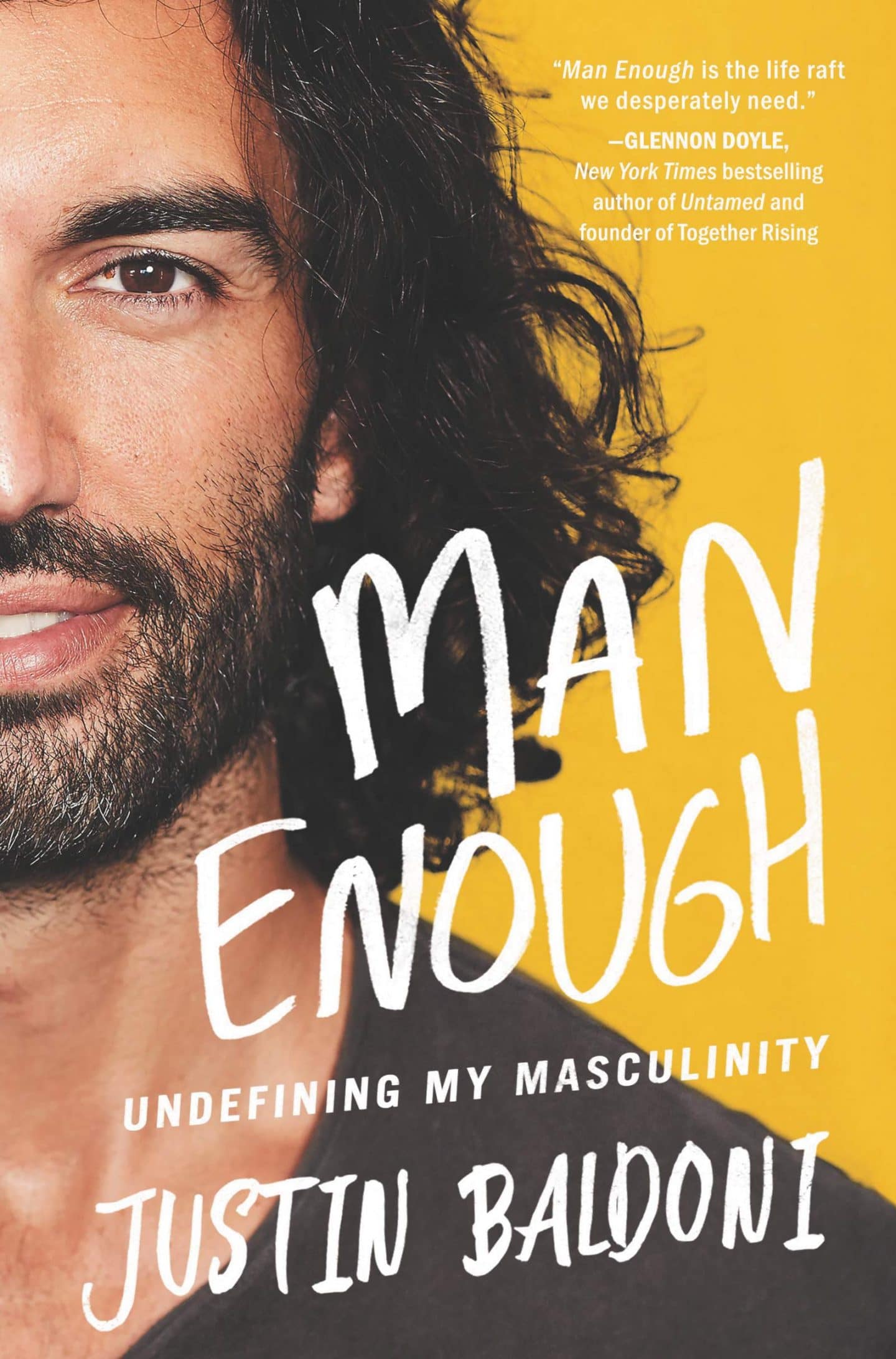
Trending

Join The Book of Man
Sign up to our daily newsletters to join the frontline of the revolution in masculinity.




